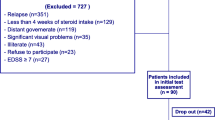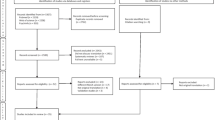Abstract
Neuropsychological tests (NPTs) are highly dependent on education, culture differences as well as age and sex. It is therefore essential to take these factors into consideration when translating NPTs to be used in screening for cognitive impairment. Translations into Arabic must respect the principles of linguistic relativity and cultural specificity of the population under study. The objective is to assess feasibility and outcome of translating neuropsychological tests to Arabic. A team of Lebanese professionals selected a battery of screening NPTs. These tests were translated into Arabic and independently back translated by a team of sociolinguists and cultural specialists. The translations were adapted to suit the Lebanese culture. The final NPT translated versions were reached by consensus of an expert panel and tested on a group of independently living community-dwelling elderly. Translated items had to be modified when: (1) terms could not be translated using one word as required by the test; (2) Concepts were foreign to the culture; (3) Translated words carried multiple meanings; (4) Words were rarely used in Lebanon; (5) Sentences did not have an equivalent; and (6) Words had letters pronounced differently by subgroups in Lebanon. Despite all measures to maintain cultural sensitivity in translations, non-linguistic challenges remained. A battery of cognitive screening tests were translated into Arabic and adapted for the Lebanese population. These adaptations allow for a better assessment of cognitive abilities since they reflect the thought patterns of the population. The challenge is to establish local normative data.
Similar content being viewed by others
References
Ardila Alfredo (2007) Toward the development of a cross-linguistic naming test. Archiv Clin Neuropsychol 22:297–307
Benedict Ralph H B (1996) Brief visuospatial memory test-revised. Psychol Assess Res 8(2):145–153
Folstein MF, Folstein SE, Mc Hugh PR (1975) Mini Mental State: a practical method for grading the cognitive state of patients for the clinician. J Psychiatry Res 12:189–198
Galvin JE, Roe CM, Powlishta KK, Coats MA, Murich SJ, Grant E, Miller JP, Storandt M, Morris JC (2005) The AD8, a brief informant interview to detect dementia. Neurology 65:559–564
Godefroy O. et al. (2008). Groupe de Réflexion Pour l’évaluation des Fonctions Exécutives, Batterie Grefex. Fonctions Executives et Pathologies Neurologiques et Psychiatriques: evaluation on pratiques clinique, Godefroy (ed) Solal, Marseile
Grober E, Buschke H, Crystal H, Bang S, Dresner R (1988) Screening for dementia by memory testing. Neurology 38:900–903
Grober E, Ocepek-Welikson K, Teresei J (2009) The free and cued selective reminding test: evidence of psychometric adequacy. Psychol Sci Quart 53(3):266–282
Hai-Yig L (2011) The Sapir–Whorf hypotheses and foreign language: teaching and learning. US China Foreign Lang 9(9):569–574
Hussein Bassel Al-Sheikh (2012) The Sapir–Whorf hypothesis today. Theory Pract Lang Stud 2(3):642–646
Jing HE (2011) The validity of Sapir–Whorf hypothesis—rethinking the relationship among language, thought and culture. US China Foreign Lang 9(9):560–568
Kalafat M, Hugonot-Diener L, Poitrenaud J (1998) Standardisation et étalonnage français du “Mini Mental State”(MMS),version Greco. (association.gens.free.fr)
Nasreddine Ziad (2005) The Montreal Cognitive Assessment: a brief screening tool for mild cognitive impairment. JAGS 53(4):695–699
Sapir Edward (1912) Language and Environment. Am Anthropol New Series 14(2):226–242
Sherzer Joel (1987) Discourse centered approach to language and culture. Am Anthropol 189(2):295–309
Tajima Yayoi, Duffield Nigel (2012) Linguistic versus cultural relativity: on Japanese-Chinese difference in picture description recall. Cogn Linguist 23(4):675–709
T Evelyn, Helena Chang Chui (1987) The modified mini mental state (3MS) examination. J Clin Psychiatry 48(8):314–317
Ur-Rehman Khalil (2012) Mind language and culture. Dialogue 2(1):1–14
Van Der Linden M, Poitrenaud J, Kalafat M, Calicis F, Wynes C, Adama S (2004) L’épreuve De Rappel Libre/Rappel Indice Á16 Items (RL/RI-16). L’évaluation des troubles de la mémoire épisodique: fondements théoriques et méthodologiques. Collection Neuropsychologie. Marseil, Solal
Acknowledgments
Pfizer, Prof. Nabil Abou-Mrad PhD., Prof. Jean Touma PhD., Ghassan Obeid MS., Katia Obeid MS., Roula Ziadeh BS.
Conflict of interest
None.
Author information
Authors and Affiliations
Corresponding author
Rights and permissions
About this article
Cite this article
Abou-Mrad, F., Tarabey, L., Zamrini, E. et al. Sociolinguistic reflection on neuropsychological assessment: an insight into selected culturally adapted battery of Lebanese Arabic cognitive testing. Neurol Sci 36, 1813–1822 (2015). https://doi.org/10.1007/s10072-015-2257-3
Received:
Accepted:
Published:
Issue Date:
DOI: https://doi.org/10.1007/s10072-015-2257-3




